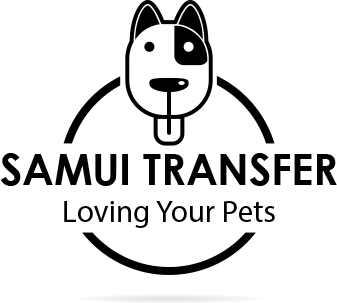
Does your furry friend frequently suffer from digestive issues like vomiting, diarrhea, gas, constipation, or lack of appetite? Dogs with sensitive stomachs require extra care and dietary considerations to keep their gastrointestinal system regulated. This guide covers all the essential tips for properly managing and caring for a dog with a sensitive tummy.
Understanding Causes
There are many possible underlying reasons some dogs develop chronic sensitive stomach problems. These might include:
- Food allergies or intolerances to common ingredients.
- Inflammatory bowel diseases like colitis.
- Bacterial, viral, or parasitic infections.
- Enzyme deficiencies impairing digestion.
- Sudden diet changes.
- Stress and anxiety.
- Certain medications.
No matter the cause, digestive sensitivities can be very uncomfortable for dogs and lead to more serious complications if not properly managed.
Dietary Adjustments
One of the most important aspects of sensitive stomach care is identifying and eliminating any potential food triggers. This may involve an elimination diet trial to find offending ingredients. The ideal diet includes:
- Novel, limited protein sources like duck, bison, or venison.
- Easily digestible carbs like oatmeal and sweet potatoes.
- No common allergens like beef, chicken, dairy, corn, or wheat.
- Added prebiotics, probiotics, and fiber for gut health.
- Low-fat, anti-inflammatory formulas.
The experts at Nextrition say that hypoallergenic dog food meeting these standards can help soothe sensitive stomachs and alleviate chronic issues.
Feeding Best Practices
Besides the right diet, these feeding tips also help manage digestive sensitivities:
- Stick to a consistent feeding routine and schedule.
- Break up meals into smaller, more frequent portions.
- Discourage eating too fast by using puzzle feeders.
- Ensure constant access to fresh, clean drinking water.
- Gradually transition to any new foods over 1-2 weeks.
- Minimize stressors that could upset their stomach.
- Ask your vet about supplements like digestive enzymes.
Creating a calm, low-stress feeding environment is equally important for sensitive pups. Things like separation anxiety, exciting events, or vigorous exercise too soon after meals can all trigger stomach upset.
Treating Acute Flare-Ups
Even with the best preventative care, acute vomiting or diarrhea may still occasionally occur during sensitive stomach flare-ups. Here is how to handle these instances:
- Withhold food for 12-24 hours to allow the system to rest.
- Offer small amounts of a bland, easily digestible diet.
- Provide plenty of fresh water to prevent dehydration.
- Ask your vet about medications for nausea/diarrhea.
- Watch for signs of worsening that require a vet visit.
With time and patience, the digestive system can reset and recover from minor incidents.
Other Supportive Care
Along with specialized diets and careful feeding, these additional care tips support overall GI health:
- Regular deworming treatments to eliminate parasites.
- Annual wellness visits and fecal testing.
- Probiotic supplements to restore gut flora balance.
- Moderate daily exercise like walks to aid digestion.
- Minimize stressors through training and enrichment.
- Grooming routines to catch any new issues early.
It’s also crucial to promptly address any new or worsening digestive symptoms with your veterinarian right away.
When to See the Vet
While some mild, occasional stomach upsets can be managed at home, you should seek prompt veterinary care if your dog exhibits any of the following:
- Repeated, uncontrolled vomiting or diarrhea.
- Blood present in vomit or stool.
- Severe abdominal pain or bloating.
- Signs of dehydration like sunken eyes.
- Lethargy, weakness, fever, or refusal to eat.
- Dramatic, unexplained weight changes.
Many serious illnesses like pancreatitis, inflammatory bowel disease, or intestinal blockages share similar symptoms to food sensitivities. Getting an accurate diagnosis is key.
Conclusion
With patience, consistency and close communication with your veterinarian, most dogs with sensitive stomachs can live happy, healthy lives through specialized diet and comprehensive care. Don’t ignore chronic digestive signs, as your pup is trying to tell you something is wrong.
